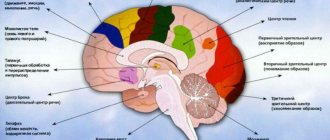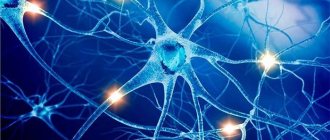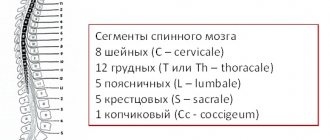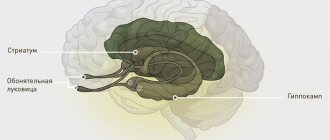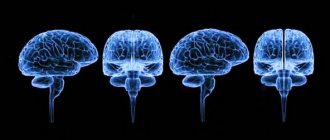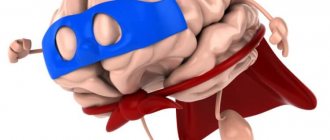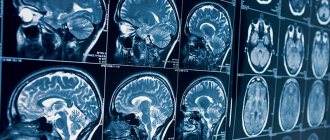Did you know that craters on the Moon were discovered before they discovered that the human brain is divided into separate sections, each with its own specialization? And at present, this unique tool for controlling our body continues to retain many of its secrets. And scientists studying its functions are still surprised as they discover more and more new properties and features of brain activity. A striking example of such unexpected discoveries is the functions of the hippocampus, a small paired formation in the temporal lobes of the cerebral hemispheres.
One of the oldest parts of the brain
The hippocampus arose at the dawn of the evolution of vertebrates and went through a long development path, becoming an extremely important part of the structure of the human brain. It got its slightly strange name due to its curved shape, reminiscent of a seahorse, and the literal translation of this concept is “curved horse.”
The hippocampus is a paired organ; its parts are located in different hemispheres, but are connected by special nerve fibers. Relatively small “squiggles” of the hippocampus are part of the oldest region of the brain - the limbic system, which is also called the archeocortex - “ancient cortex”. It controls elementary physiological processes and vegetative functions. We can say that the limbic system is what our brain has in common with all mammals.
The hippocampus is still ancient, but despite its small size, it is not a primitive formation at all. And he has just begun to reveal his secrets.
What is the hippocampus?
The hippocampus is a key part of the limbic system of the brain. Its structures are involved in regulating the functioning of internal organs, emotions, memory, spatial navigation and other cognitive functions.
This area of the brain is one of the most studied, but there is no consensus among scientists about the functions of the hippocampus. Some researchers believe that it is a multifunctional structure, while others reject this approach. Among scientists, the hippocampus has been repeatedly called the cornerstone of neurophysiology, which indicates the contradictory opinions about this structure. Perhaps the reason for this is also that the limbic system is one of the oldest in evolutionary terms, which is why its multifunctionality is associated.
According to the concept of P.V. Simonov, in psychophysiology there are 4 types of brain structures. Individual characteristics of the functional interaction of the frontal cortex, hippocampus, hypothalamus and amygdala of the brain predetermine the formation of one of 4 types of temperament - choleric, melancholic, sanguine, phlegmatic. Thus, the dominance of the frontal cortex over the hippocampus leads to extroversion (outward-facing personality), and the dominance of the hippocampus leads to introversion and orientation to the past. These two areas of the brain exhibit diametrically opposed properties.
Multifunctionality of the hippocampus
Back in the 16th century, the Italian anatomist Giuseppe Aranzi (Arantius) drew attention to two small paired sections of the brain, similar to seahorses. We owe this scientist not only the concept of “hippocampus”. Arantius suggested that this part of the brain is responsible for the perception of smells, and until the end of the 19th century, physiologists called it the “olfactory brain.” Only in 1890, the famous Russian physiologist V. M. Bekhterev published the results of studies in which he proved the connection of the hippocampus with the processes of memorization and retention of information.
Memory management
Small compared to the rest of the brain, the “squiggles” of the hippocampus control the complex processes of short-term memory and the movement of processed information into long-term memory. That is, we owe all our professional knowledge and skills, childhood memories, stored information about significant life events and the faces of friends and loved ones to the hippocampus.
However, how the memory management process occurs still remains a mystery. But the very location of the hippocampus is such that it is connected to all parts of the brain, where it distributes everything that needs to be remembered and stored.
This part of the brain is responsible for emotional memory, that is, the storage of emotions and feelings. This is perhaps one of the oldest types of memory, and it is the most durable. We may forget the details of an event, the features of the people involved in it, but the memory of the feelings we experienced remains for a very long time.
Studies have shown that the hippocampus is also responsible for memory for faces. This is also a very important type of memory, which in ancient times also played a protective function, because it was very important to quickly distinguish an enemy from a friend.
In addition, the hippocampus is engaged in a kind of sorting of information, weeding out the insignificant or unimportant, and sending the necessary ones for long-term storage to other parts of the brain, which are responsible for a variety of types of memory. This sorting occurs primarily during sleep. I think you have heard that when preparing for an exam, when you need to remember a large amount of information, it is useful to sleep during the day. This is precisely due to the mode of operation of the hippocampus, which processes and sorts information received by the brain while a person is sleeping. During wakefulness, this part of the brain has many other important responsibilities. For example, orientation in space.
Spatial orientation function
A person is constantly in diverse relationships with the world around him. These relationships, as a rule, include various motor operations and complex actions associated with orientation in space. Without the ability for such orientation, we will not even be able to lift a spoon to our mouth or sit on a chair. The hippocampus also controls all this. Even our three-dimensional perception and functioning in the 3D world is his merit.
The hippocampus stores all impressions and sensations associated with the perception of the surrounding space in memory as an important experience. Spatial memory allows us to navigate even in a completely unfamiliar environment, to correlate the sizes of objects, their essence and distance to them. For example, the ability to navigate the terrain allows us to understand that a hole in the road is dangerous and needs to be avoided, even if we are walking along this road for the first time and have never seen this hole. By the way, the fact that we can recognize and identify different objects, despite our spatial position and speed of movement, is also a merit of the hippocampus. Thus, we perceive a chair the same way, regardless of whether we are sitting on it, standing next to it, lying on the floor, or walking past it.
Recent studies have shown that the hippocampus not only controls the neurons responsible for the perception of space, but also stores unique neural maps of the places where we have been. And in people whose profession requires good spatial memory, for example, taxi drivers, the hippocampus is often larger than in those for whom storing information about the area is not so important.
Neuron Factory
For a long time it was believed that the bulk of neurons - nerve cells of the brain - are formed in childhood, and in adults they can only die off as a result of nervous overload and old age. I think everyone has heard the phrase “nerve cells do not recover.”
It turned out that this is not true at all. Neurons are reproduced, that is, “born” throughout a person’s life, and with proper mental activity (when a person thinks, solves complex problems, is engaged in creativity), they are included in the activity of the brain. True, with age, the rate of creation of new nerve cells decreases, but the lifespan of existing ones increases.
So, the main factory for the production of neurons in the brain is also the hippocampus. Every day it “produces” about 700 nerve cells. This process, called neurogenesis, was discovered relatively recently and has so far been little studied.
There is an assumption that the functions of the hippocampus are not limited to this. Its role in the functioning of the brain is enormous, which is also proven by the problems that arise when the functioning of this relatively small part of our “central computer” is disrupted.
Association with diseases
Dysfunction of the hippocampus is observed in the following diseases and syndromes:
- Alzheimer's disease, in the early stages manifests itself in short-term memory disorders, and later in long-term memory. In this case, the size of the hippocampus decreases. Pathology most often occurs in old age (over 65 years). Gradually, the patient experiences disturbances in speech, cognitive abilities, and orientation in a familiar environment. He becomes unable to take care of himself.
- Hypoxia (oxygen starvation).
- Inflammation of the brain (encephalitis).
- Temporal lobe epilepsy. In more than 30% of cases, this disease is associated with perinatal brain damage due to fetal hypoxia, infectious pathologies (measles, rubella, syphilis and others), and can also occur after birth injuries.
When the hippocampus is damaged, Korsakoff's syndrome is observed, in which a person cannot remember current events, but events from the distant past are retained in his memory. Patients are disoriented in time and space, do not know where they are, and cannot name the current date.
Consequences of damage to the hippocampus
Disturbances in the activity of the human brain can be caused by three groups of reasons:
- injuries;
- mental illness;
- neurodegenerative processes caused by drug and alcohol use or associated with aging.
Almost all of these factors in one way or another affect the activity of the hippocampus, which leads to disruption or loss of a number of important mental functions.
Memory impairment
Most memory problems occur when the hippocampus is damaged or its activity is disrupted. We are talking here not about banal forgetfulness and absent-mindedness, but about serious pathologies. These include two main types of partial memory loss:
- Retrograde amnesia is the loss of memory of events preceding an injury or illness.
- Anterograde amnesia is the forgetting of what happened after an accident or illness.
In both cases, only declarative memory is lost, based on generalizing our experience, recognizing events, faces, etc. This is the sphere of conscious memories, which is controlled by the hippocampus. As already mentioned, this part of the brain is associated with the transfer of information from short-term memory to long-term memory, and damage to the hippocampus leads to disruption of this process. As a result, either access to data stored in long-term memory is blocked (retrograde amnesia), or long-term storage of newly received information becomes impossible - anterograde amnesia.
Psychopathology
The hippocampus is not only a very important, but also a vulnerable part of our brain. With various mental illnesses caused by genetic pathologies, stress, use of psychotropic drugs or aging, he suffers first.
Despite the insufficient knowledge of the functions of the hippocampus, its connection with some mental disorders has been established quite accurately:
- Epilepsy. Studies have shown that pathologies or deformations of the hippocampus were identified in 75% of patients with epilepsy.
- Alzheimer's disease. This disease, characteristic of older people, is associated with dysfunction of the hippocampus, which even decreases in volume. And the symptoms of Alzheimer's disease indicate its connection with disruption of this part of the brain. These include memory impairment and problems with orientation in space, and with deep pathology, the inability to recognize the faces of loved ones.
- Korsakov's syndrome, which can be either alcoholic or non-alcoholic, associated, for example, with a brain tumor, trauma, vascular disorders in old age, etc. This disease is characterized by the inability to remember events of the present and disorientation in space, time, occurring events.
One of the factors affecting the functioning of the hippocampus is prolonged stress, which leads to rapid and massive death of neurons. The hippocampus, which is responsible for their reproduction, simply cannot cope with the load. The hormone cortisol, which is produced in large quantities during stress to activate the body's activity, stimulate the muscular and vascular system, etc., is also involved in the destruction of cells in this part of the brain. The main side effect of cortisol on the brain is disruption of the hippocampus, which leads to to memory impairment, absent-mindedness, disorientation in space.
This is why it is so important to avoid prolonged stressful conditions. But if going into the forest and living in a secluded hut on the shore of a lake is not your option, then you should learn to manage your emotions and remain calm.
Neurokinesiology
The hippocampus: the orchestra conductor in the depths of our brain
Admin
09.01.2019
Uncategorized
Hippocampus Have you ever felt stupid because you forgot what you wanted to say at the last moment? Our head is full of various information that we accumulate over the years. Sometimes there is so much information that our brain is forced to forget or ignore some part of it.
The part of the brain responsible for critical functions such as memory, emotions and learning is called the hippocampus. Without it, we would lose the ability to remember and experience the emotions associated with those memories. Want to know more? Neuropsychologist Mairena Vazquez tells you what the hippocampus is and why such a tiny brain structure is so important.
Hippocampus
The hippocampus is responsible for memory and emotions
What is the hippocampus?
The hippocampus owes its name to the anatomist Giulio Cesare Aranzio, also known as Arantius or Julius Caesar Aranzi, who in the 16th century drew attention to the fact that this part of the brain looks very much like a seahorse. The word hippocampus comes from the Greek Hippos (horse) and Kampe (curved).
Having made the scientific discovery of this brain structure, Arantius linked it to the sense of smell, putting forward the idea that the main function of the hippocampus is to process olfactory stimuli (smells). This theory was supported until 1890 - until academician Vladimir Bekhterev proved that in fact the hippocampus is responsible for memory and cognitive processes.
Do you want to know how your brain works? Are there any symptoms that indicate the possible presence of a disorder? Test your brain's core abilities and functions with the CogniFit General Cognitive Test now!
The hippocampus is one of the most important parts of the human brain, closely associated with memory and emotions. It is located in the temporal lobe (behind each temple) and communicates with various parts of the cerebral cortex.
The hippocampus is considered the main memory structure.
This is a small paired organ of an elongated and tortuous shape, located in both hemispheres of the brain (i.e., one hippocampus in the right and left hemispheres).
El hipocampo se llama así debido al gran parecido que guarda con un caballito de mar.
The hippocampus got its name because of its resemblance to a seahorse.
Where is the hippocampus located?
The hippocampus is located in the medial temporal lobe and is connected to various areas of the brain.
The hippocampus, as well as the amygdala and hypothalamus, form the limbic system and are responsible for controlling primitive physiological reactions. These regions belong to the most “ancient, deep and primitive” part of the brain, known as the “archicortex” (old cortex) or “allocortex” (the most ancient region of the human brain), which emerged millions of years ago to provide for the basic needs of mammalian ancestors.
El hipocampo se encuentra en el lóbulo temporal y forma parte del sistema límbico. Imagen: Wikipedia.
The hippocampus is located in the temporal lobe and is part of the limbic system. Rice. Wikipedia
Why is the hippocampus needed?
What are the functions of the hippocampus? What role does he play? What is he responsible for? Among the main functions of the hippocampus are mental processes associated with memory consolidation and the learning process, as well as the processes of the emergence and regulation of emotional states and the provision of spatial orientation. How does the brain learn?
A number of researchers have also found a connection between the hippocampus and inhibition or inhibitory control of behavior, but this is fairly new information that is still being studied.
Hippocampus and memory
The hippocampus is primarily responsible for emotional and declarative memory. With its help, we can recognize faces, describe objects and events, and associate positive or negative experiences and sensations with memories of past events.
The hippocampus is involved in the formation of both episodic and autobiographical memories based on our past experiences. The brain needs space to store this amount of information for many years, so the hippocampus transfers these temporary memories to other areas of the brain, where they are stored in long-term memory.
This is why the oldest memories are best preserved. If the hippocampus is damaged, we would lose the ability to learn and retain information in memory. In addition to the ability to turn memories into long-term memory, the hippocampus associates their contents with positive or negative emotions, depending on whether these memories are associated with positive or negative experiences.
There are many types of memory: semantic memory, episodic memory, procedural memory, implicit or hidden memory, declarative memory, etc. The hippocampus is responsible for declarative memory (including our personal experience and knowledge about the world around us), managing its content, which can be expressed in verbal form (words). Various types of memory are not regulated exclusively by the hippocampus; other parts of the brain are also involved. The hippocampus is responsible for most of the processes associated with memory loss, but not all.
Hippocampus and learning
The hippocampus is one of the few brain regions capable of neurogenesis throughout life, making it responsible for learning and information retention. In other words, the hippocampus is capable of creating new neurons and connections between them throughout its life cycle.
Knowledge is acquired gradually after much effort, and this is directly related to the hippocampus. Forming new neural connections is vital to storing new information in our brains. Therefore, the hippocampus plays a major role in learning.
Fun fact: Is it true that London taxi drivers have larger and better developed hippocampi? Why? To obtain a license, London taxi drivers must pass a difficult exam, which requires them to memorize a huge number of streets and places. In 2000, Eleanor Magear conducted a study of London taxi drivers which showed that the back of their hippocampus was larger. She also found that the size of the hippocampus is directly proportional to the driver's work experience. Thus, training, learning and experience change and model the brain.
Hipocampo Taxistas Londinenses
The effects of training on the brain and hippocampus in London taxi drivers. Rice. frontiersin.org
Spatial orientation and the hippocampus
One of the important functions in which the hippocampus plays a significant role is spatial orientation.
Spatial orientation or navigation allows us to keep our mind and body in three-dimensional space, move and interact with the world around us.
Various studies have been conducted on rodents, which have shown that the most important function of the hippocampus is the ability to navigate and spatial memory. Thanks to the hippocampus, we can navigate unfamiliar cities and areas, etc. However, these data have not yet been studied in humans and require additional research.
What happens when the hippocampus is damaged?
Damage to the hippocampus results in the inability to remember new events. Those. Anterograde amnesia occurs, in which a person cannot remember events that occurred after the memory loss. At the same time, knowledge and memory of what happened before the onset of the disease is preserved.
Lesions of the hippocampus can cause anterograde or retrograde amnesia, depending on the loss of memories associated with declarative memory. In this case, non-declarative memory is not affected and remains intact. For example, a person with a hippocampal lesion may learn to ride a bicycle after the onset of the disease, but will not remember ever having seen a bicycle before in his or her life. Those. a person with a damaged hippocampus is able to acquire skills, but cannot remember the process itself.
Anterograde amnesia is loss of memory for events that occurred after the onset of illness or injury. Retrograde amnesia, on the contrary, leads to the forgetting of events and memories that preceded the illness or injury.
The question arises: why is the hippocampus damaged during amnesia? In simple terms, this part of the brain is like a door for neural patterns that sporadically hold information before it reaches the frontal lobe. It can be said that the hippocampus is the key to memory consolidation, turning Short-Term Memory into Long-Term Memory. If this door is damaged and does not allow information to be stored, it will be impossible to create long-term memories.
In addition, when the hippocampus is damaged, not only the ability to make memories is lost, but the ability to experience the emotions associated with these memories is lost, since the person cannot connect the events and the feelings that they caused.
What causes damage to the hippocampus?
Mostly, lesions of the hippocampus occur due to aging and neurodegenerative diseases, stress, cerebrovascular diseases, epilepsy, aneurysm, encephalitis, schizophrenia, etc.
Do you suspect yourself or someone close to you is suffering from depression? Find out now if you are at risk of developing depression with the innovative CogniFit neuropsychological depression test. Get started now!
Aging and dementia
With aging in general and dementias (such as Alzheimer's disease) in particular, the hippocampus is one of the most vulnerable parts of the brain. The ability to form new memories or recreate fresh autobiographical facts in memory is impaired. In this case, the cause of memory problems is the death of hippocampal neurons. How to prevent dementia?
Most of us have encountered someone suffering from some type of dementia or memory loss. It is curious, but such people retain childhood memories or memories of very long-standing events the longest. Why does this happen if the hippocampus is damaged?
The fact is that even with severe damage to the hippocampus (due to dementia or another disease), the oldest and most important memories for a person are best preserved due to the fact that over time, these memories, as we mentioned above, “separated” from the hippocampus, becoming part of other brain structures associated with long-term memory.
Hippocampus and stress
This part of the brain suffers greatly under stress because stress inhibits and atrophies neurons.
Have you noticed that under stress, when you need to do a lot of different things, sometimes memory problems begin?
Stress, and in particular cortisol (a type of hormone released in response to stress), damages our brain structures, often causing the death of neurons. Therefore, it is very important to learn to remain calm and manage your emotions in order to maintain the health of the hippocampus and help it perform its functions optimally.
Source: https://blog.cognifit.com/ru/%D0%B3%D0%B8%D0%BF%D0%BF%D0%BE%D0%BA%D0%B0%D0%BC%D0%BF /
You can sign up online or get the schedule of the nearest master classes at the link: https://qviz.matomba.ru/1c06710015fbab389df6
Hippocampal pathologies
Not only do age-related pathologies such as Alzheimer's disease (for which hippocampal destruction is one of the early signs of the disease) have profound effects on many types of perception, but even normal aging is associated with a gradual decline in some types of memory, including episodic and short-term memory. Because the hippocampus plays an important role in memory formation, scientists have linked age-related memory impairment to physical deterioration of the hippocampus. Initial studies found significant neuronal loss in the hippocampus in older adults, but new research suggests that such loss is minimal. Other studies have shown that the hippocampus shrinks significantly in older adults, but similar studies again found no such trend.
Stress, especially chronic stress, can cause atrophy of some dendrites in the hippocampus. This is due to the fact that the hippocampus contains a large number of glucocorticoid receptors. Due to constant stress, steroids associated with it affect the hippocampus in several ways: they reduce the excitability of individual hippocampal neurons, inhibit the process of neurogenesis in the dentate gyrus and cause dendritic atrophy in the pyramidal cells of the CA3 area. Studies have shown that in people who experienced long-term stress, hippocampal atrophy was significantly higher than other areas of the brain. Such negative processes can lead to depression and even schizophrenia. Hippocampal atrophy has been observed in patients with Cushing's syndrome (high levels of cortisol in the blood).
Epilepsy is often associated with the hippocampus. During epileptic seizures, sclerosis of certain areas of the hippocampus is often observed.
Schizophrenia occurs in people with an abnormally small hippocampus. But to date, the exact connection between schizophrenia and the hippocampus has not been established.
As a result of sudden stagnation of blood in areas of the brain, acute amnesia may occur, caused by ischemia in the structures of the hippocampus.
